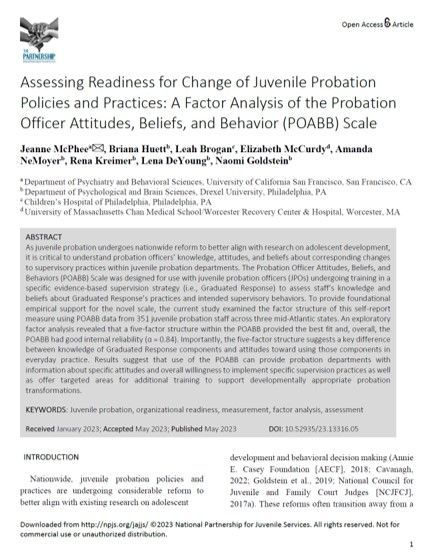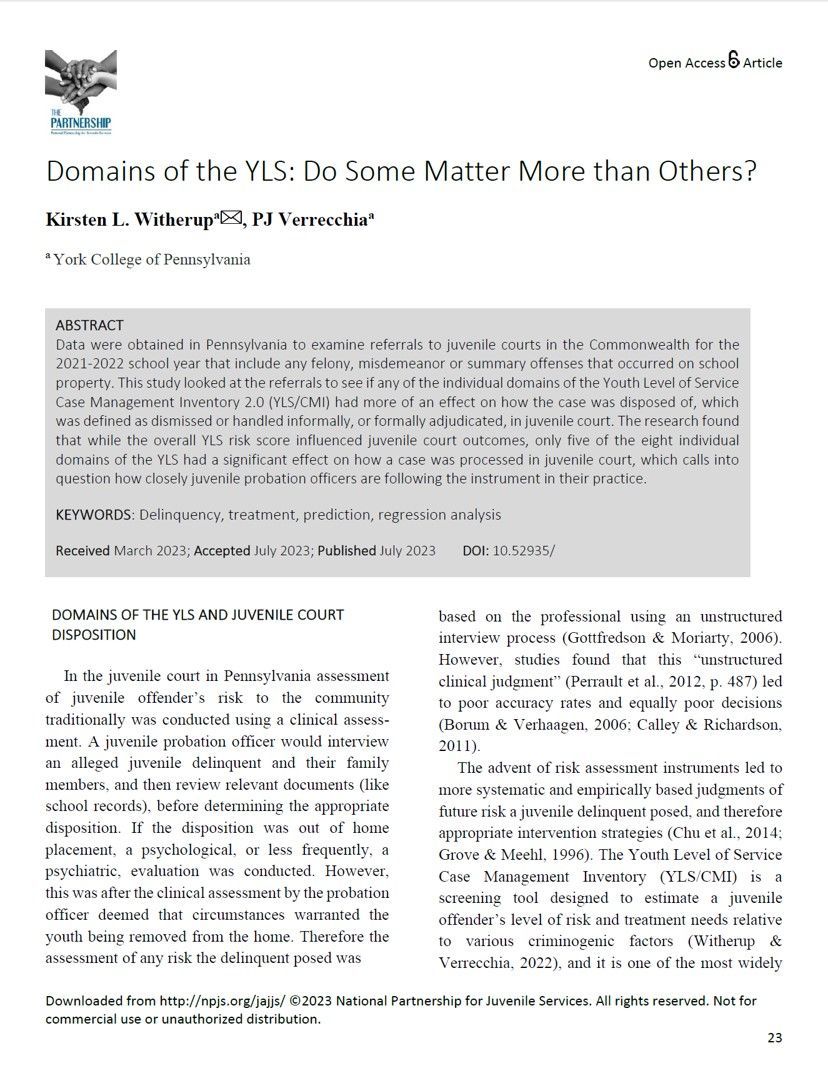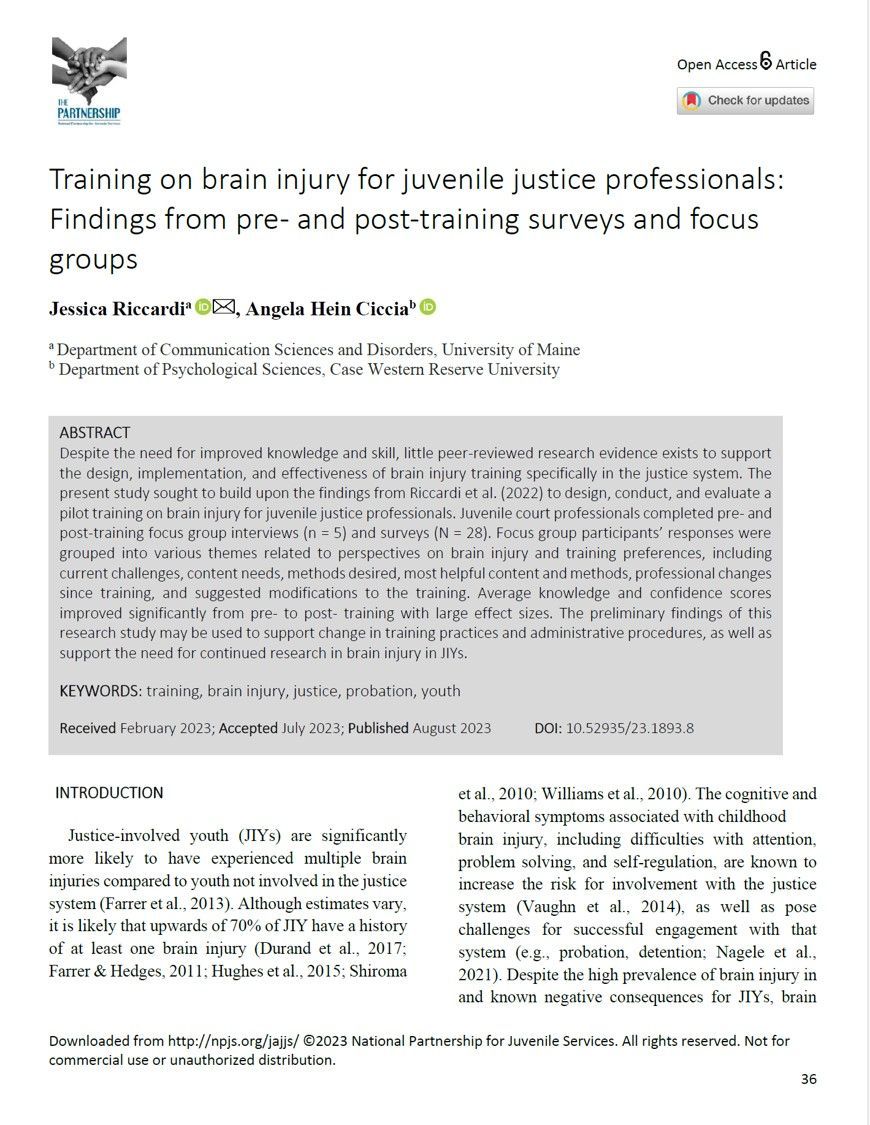Despite the need for improved knowledge and skill, little peer-reviewed research evidence exists to support the design, implementation, and effectiveness of brain injury training specifically in the justice system. The present study sought to build upon the findings from Riccardi et al. (2022) to design, conduct, and evaluate a pilot training on brain injury for juvenile justice professionals. Juvenile court professionals completed pre- and post-training focus group interviews (n = 5) and surveys (N = 28). Focus group participants’ responses were grouped into various themes related to perspectives on brain injury and training preferences, including current challenges, content needs, methods desired, most helpful content and methods, professional changes since training, and suggested modifications to the training. Average knowledge and confidence scores improved significantly from pre- to post- training with large effect sizes. The preliminary findings of this research study may be used to support change in training practices and administrative procedures, as well as support the need for continued research in brain injury in JIYs.



